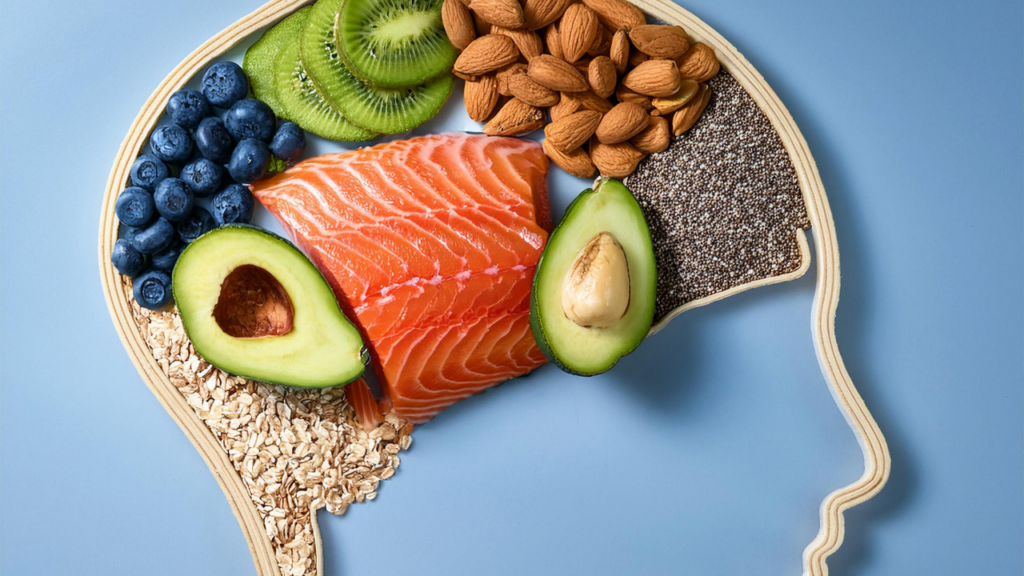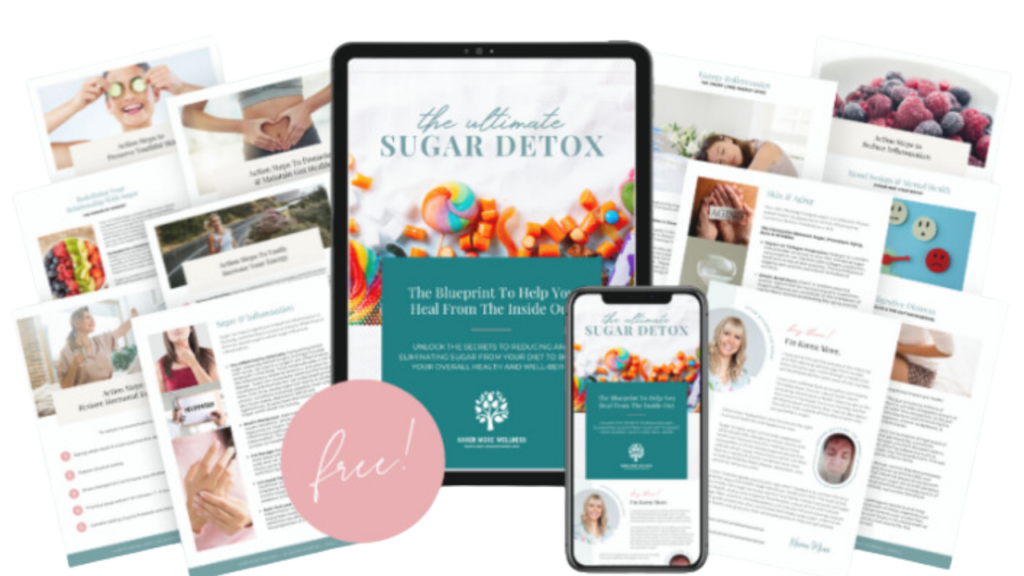type below and hit enter
Search the blog
download now
As a Health, Wellness, and Mindset Coach, I’m passionate about helping people live a low-tox, balanced life with simple, sustainable tools & Mindset shifts to help them heal, stay healthy and truly thrive.
I'm Karen more.
Boost Your Energy & Your Health By Eliminating Hidden Sugars
Discover how to transform your health with simple easy-to-implement steps by eliminating the hidden sugars that silently sabotage your Health.
Why Stopping Sugary Snacks Isn’t About Willpower

If you’ve ever promised yourself you’d stop eating chocolate—only to give in by 3pm—then you’re not alone. I’ve been there too! For me, stopping sugary snacks felt impossible in my teens and early twenties. Between fizzy drinks, chocolate bars, and irresistible cakes from the local bakery, I was hooked. It wasn’t until my thirties that I realised I needed to get in control of my cravings and start looking at what was behind them. Many women feel this way—stuck in a cycle of cravings, guilt, and frustration, and feeling powerless or “weak” for not being able to say no.
But here’s the truth: stopping sugary snacks isn’t just about willpower. In fact, your body and brain may be working against your best intentions.
Let’s explore what’s really behind those sugar cravings.
Low Energy
When your energy dips, your body instinctively looks for a quick fix to restore blood glucose levels. Glucose is your body’s primary source of energy, and it’s especially important for brain function. Simple sugars, like those found in sweets and processed snacks, are rapidly absorbed into the bloodstream, causing a sharp spike in blood glucose (blood sugar). This sudden rise triggers the pancreas to release a large amount of insulin, a hormone that helps move glucose from the blood into your cells for energy. However, when too much insulin is released quickly, it can cause your blood sugar to drop just as rapidly.
This “sugar crash” often leaves you feeling more tired, irritable, or even shaky—lower than you felt before the sugar fix. Instead of blaming yourself, ask what your body really needs—usually, rest or a more balanced meal which contains protein.
Lack of Sleep
Sleep impacts your hunger hormones which control appetite—ghrelin and leptin. Poor sleep makes you hungrier and less satisfied, increasing sugar cravings. Prioritising quality sleep can reduce this urge.
When you don’t get enough quality sleep, ghrelin levels increase and leptin levels decrease, which leads to feeling hungrier and less satisfied after eating. In addition, sleep deprivation also raises levels of cortisol, a stress hormone that can further drive cravings—especially for high-sugar, high-fat foods—as your body seeks quick energy. This hormonal imbalance can significantly increase your desire for sugary snacks the next day. Prioritising 7–9 hours of consistent, quality sleep supports hormone balance, stabilises appetite, and helps reduce the urge for sugar-driven energy boosts.
Low Mood
Sugar can temporarily boost mood by increasing the availability of serotonin, a neurotransmitter often referred to as the “feel-good chemical.” This short-term spike in serotonin may explain why sugary foods feel comforting or calming in the moment. However, over time, frequent sugar consumption can have the opposite effect. Choose uplifting alternatives which release serotonin like walking in nature, sunlight, or a good laugh with a friend.
Blood Sugar Imbalances
Unbalanced meals and skipped meals cause your blood sugar to crash. This often triggers intense sugar cravings. When you go too long without eating, or consume meals high in refined carbohydrates and low in nutrients, your blood glucose spikes and then falls rapidly. This sudden drop—known as reactive hypoglycaemia—signals to your brain that you need quick energy, which is why you crave sugar. Stabilise your blood sugar with balanced meals that include protein, healthy fats, and fibre, which slow digestion and promote steady energy release throughout the day.
Restricting Carbohydrates
Cutting out carbohydrates completely can leave you feeling deprived, fatigued, and mentally foggy. That’s because glucose, which comes primarily from carbohydrates, is the brain’s preferred source of energy. Without enough carbs, your body may struggle to maintain steady blood sugar levels, leading to low energy and mood fluctuations. Complex carbohydrates also play a role in supporting neurotransmitter function, including serotonin, which influences mood and emotional regulation. Include options like oats, sweet potatoes, and quinoa—these foods are rich in fibre, vitamins, and minerals, and provide slow-releasing energy to keep your body and mind functioning at their best.
Emotional Eating
Sometimes you’re not physically hungry—you’re stressed, bored, lonely, or overwhelmed. In these moments, your brain seeks out a quick source of relief, and sugar becomes a fast, accessible comfort. That’s because consuming sugar stimulates the release of dopamine, the brain’s “reward” neurotransmitter, which can temporarily boost mood and reduce emotional discomfort. However, this effect is short-lived and can lead to a cycle of emotional eating followed by guilt or energy crashes. Instead, take a moment to pause and acknowledge the emotion driving the craving. Practising emotional awareness and exploring healthier ways to self-soothe—such as breathwork, movement, or journaling. These can reduce reliance on sugar for emotional regulation and build long-term resilience.
Stress
Chronic stress raises cortisol, the body’s primary stress hormone. Elevated cortisol levels increase your body’s demand for quick energy, often in the form of sugary, high-carb foods. This is because cortisol not only stimulates appetite but also encourages the storage of fat—especially around the abdomen—while disrupting blood sugar regulation. Over time, consistently high cortisol can contribute to insulin resistance, fatigue, and persistent cravings. Support your body by incorporating daily calming rituals like deep breathing, gentle stretching, or journaling. These practices help activate the parasympathetic nervous system, which lowers cortisol and helps restore balance to your body and mind.
Low Magnesium
Cravings for chocolate may signal a magnesium deficiency. They symptoms can include: muscle tension, twitches, headaches, leg cramps, heart palpitations, fatigue etc. Magnesium supports mood, energy, and blood sugar balance. To increase your levels add foods like leafy greens, avocado, salmon, nuts, seeds, legumes and dark chocolate (70%+) to your diet. Source link: (https://ods.od.nih.gov/factsheets/Magnesium-HealthProfessional/).
Sugar’s Impact on the Brain
Sugar lights up your brain’s reward system by triggering the release of dopamine, a neurotransmitter linked to pleasure, motivation, and reinforcement of behaviour. This is the same pathway activated by other addictive substances such as alcohol and nicotine. Over time, regular consumption of sugar can lead to desensitisation of dopamine receptors, meaning you need more sugar to achieve the same rewarding effect. This creates a cycle of cravings, overconsumption, and dependence—not unlike other forms of addiction.
According to Harvard Health, this neurological response helps explain why breaking the sugar habit can feel so difficult. It is biology, not a lack of discipline. Understanding how sugar affects your brain helps release the guilt—and puts you back in control with awareness and choice. You can break free with the right tools, nourishment, and support. Source link: Harvard Health – Sugar and the brain.
Strategies Beyond Willpower

Why stopping sugary snacks isn’t about willpower becomes even clearer when you take a holistic approach. Here are a few strategies to help you reclaim balance and reduce cravings—without relying on willpower alone.
Address Underlying Issues
Find healthy ways to manage stress and emotions.
Try walking, meditation, spending time outdoors, or journaling.
Focus on a Balanced Diet
Include enough protein, healthy fats, and fibre in your meals.
This helps keep your blood sugar stable and supports sustained energy.
Mindful Eating
Eat slowly and with intention. Pay attention to your hunger and fullness cues.
Mindful eating reduces emotional and unconscious snacking.
Limit Processed Foods
Processed foods often contain added sugars and unhealthy fats that can drive cravings.
Reduce them gradually and replace with whole, nourishing foods.
Choose Healthier Alternatives
Craving something sweet? Try:
- Fresh berries
- Apple slices with almond butter
- Coconut yogurt with cinnamon
- A few squares of dark chocolate
Small swaps add up to big changes.
Ready for a Fresh Start?
If you’re struggling with stopping sugary snacks and feeling stuck in the sugar cycle, you don’t have to go it alone.
🎉 My 10-day Ditch the Sugar Challenge starts Monday 28th April 2025, and I’d love to support you through it.
You’ll receive:
- Daily tips to reduce sugar with ease
- Nourishing swaps and simple recipes
- Online group support and motivation
- Tools that go beyond willpower
👉 Click here to join the challenge now
Final Thoughts
Stopping sugary snacks is not just about control—it’s about understanding your body, meeting its needs, and creating emotional and physical stability. It’s not about willpower which is a message more women need to hear. When you support your body, balance your meals, and manage stress, sugar no longer has the same hold and you don’t have to give yourself a hard time.
👉 Want to take the first step today?
Download my free guide: karenmorewellness.com/blueprint

For tips and updates follow me on Insta @Karen.More.Wellness
find me on
detox nourish thrive PROGRAM
Explore upcoming retreats
Personalised Coaching Services
As a Health, Wellness, and Mindset Coach, I’m passionate about helping people live a low-tox, balanced life with simple, sustainable tools to help you heal, stay healthy and thrive.
Karen More
holistic health coach
© 2026 KAREN MORE WELLNESS. ALL RIGHTS RESERVED | Template Design and Template Customization | Terms and conditions | Privacy Policy
show me!
Check Out The Latest Post On The Blog